
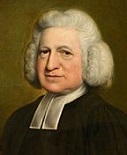
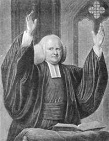




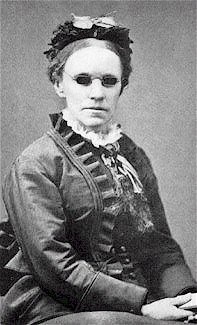
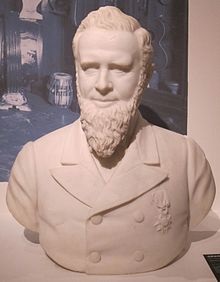
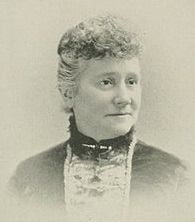



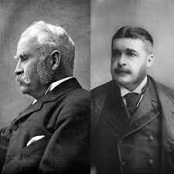
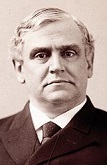
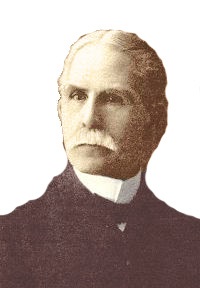

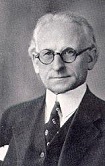


















TLW's Gospel Musicscope™ (Gospel Music Historyscope) |
By T.L. Winslow (TLW), the Historyscoper™ |
© Copyright by T.L. Winslow. All Rights Reserved. |
Original Pub. Date: Mar. 12, 2017. Last Update: Sept. 25, 2025. |
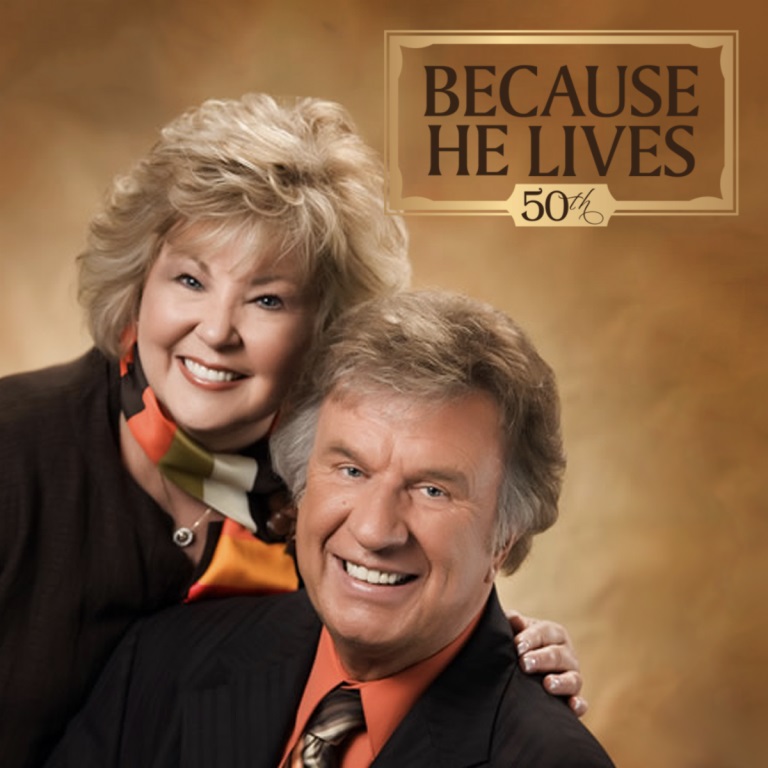

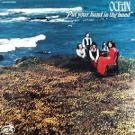
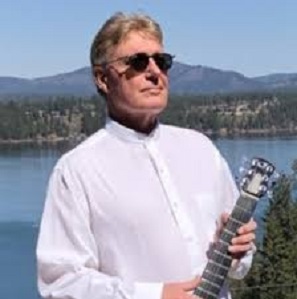
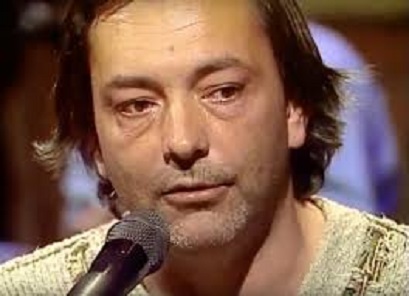

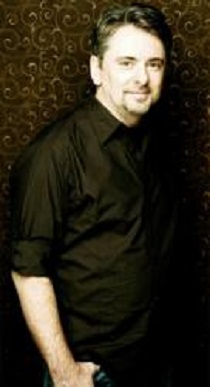


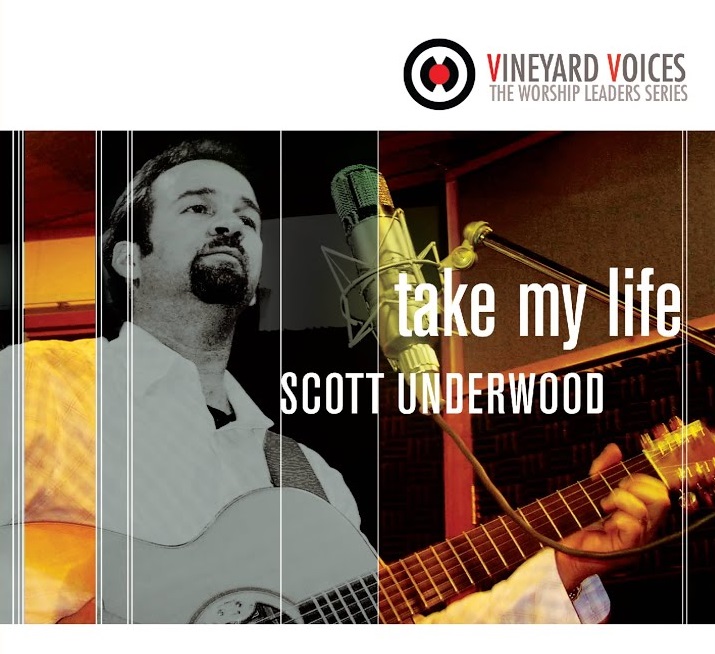
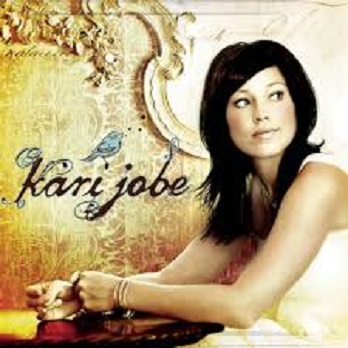





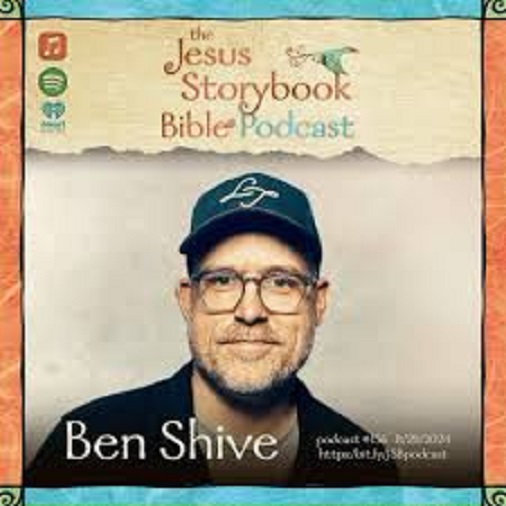

Westerners are not only known as history ignoramuses, but double dumbass history ignoramuses when it comes to (Christian) gospel music history. Since I'm the one-and-only Historyscoper (tm), let me quickly bring you up to speed before you dive into my Master Historyscope.
In the 14th cent. C.E. the Christian hymn Jesus Christ Is Risen Today (originally "Surrexit Christus hodie") is written by an anon. Bohemian author in Breslau and Munich; in 1708 it is tr. to English by John Baptist Walsh. Listen.

About 1529 Protestantism founder Martin Luther (1483-1546) composes the hymn A Mighty Fortress Is Our God, based on Psalm 46. Listen. Story behind the hymn.

In 1707 Southampton, England-born "Father of English Hymnody" Isaac Watts (1674-1748) pub. Hymns and Spiritual Songs (2 vols.) (1707-9), incl. Alas! And Did My Savior Bleed?, Marching to Zion, Come, Holy Spirit, Heavenly Dove, and When I Survey the Wondrous Cross. In 1715 he pub. Divine Songs for Children, incl. I Sing the Mighty Power of God. In 1719 he pub. The Psalms of David: Imitated in the Language of the New Testament, and Applied to the Christian State and Worship, which paraphrases in Christian verse the entire book of Psalms except for 12 he didn't think appropriate; incl. Joy to the World, which becomes the most popular Christmas hymn in North Am., Bless, O My Soul! The Living God, Jesus Shall Reign, My Shepherd Will Supply My Need, Our God, Our Help in Ages Past, This is the Day the Lord Hath Made, and 'Tis by Thy Strength the Mountains Stand; Watts' hymns go on to become popular with Lutherans, Presbyterians, Methodists, Baptists, Mormons, and Christian Scientists.

In 1738 Epworth, Lincolnshire, England-born Methodism co-founder (with brother John Wesley) Charles Wesley (1707-88) writes the Christian hymn And Can It Be That I Should Gain? (based on Psalm 145) to celebrate his May 21, 1738 (Pentecost) conversion; he goes on to compose 6.5K+ hymns; "And can it be that I should gain/ An int'rest in the Savior's blood?/ Died He for me, who caused His pain --/ For me, who Him to death pursued?/ Amazing love! How can it be,/ That Thou, my God, should die for me?"; Listen.

In 1758 English Methodist convert (ex-Baptist) Robert Robinson (1735-90) composes the hymn Come Thou Fount of Every Blessing; "Come, Thou Fount of every blessing,/ Tune my heart to sing Thy grace;/ Streams of mercy, never ceasing,/ Call for songs of loudest praise./ Teach me some melodious sonnet,/ Sung by flaming tongues above./ Praise the mount, I’m fixed upon it, Mount of Thy redeeming love."

In 1776 Anglican minister Augustus Montague Toplady (1740-78) pub. Rock of Ages (written in 1763) in the Feb. issue of The Gospel Magazine, allegedly based on Burrington Combe in the Mendip Hills; "Rock of Ages, cleft for me./ Let me hide myself in Thee;/ Let the wate and the blood,/ From Thy riven side which flowed,/ Be of sin the double cure,/ Cleanse me from its guilt and power. (Save from wrath, and make me pure.)"

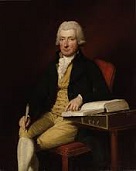
In 1779 converted infidel and slave trader (for 20 years) (who is forever haunted by 20K souls) John Newton (1725-1807) and poet William Cowper (1731-1800) pub. The Olney Hymns, composed in Olney, Buckinghamshire; it incl. the original form of Amazing Grace, which in 1835 is coupled with the tune "New Britain"; "Amazing grace! How sweet the sound,/ That saved a wretch like me!/ I once was lost, but now am found,/ Was blind, but now I see./ Twas grace that taught my heart to fear,/ And grace my fears relieved;/ How precious did that grace appear/ The hour I first believed."
In 1801 Shape notes are invented to facilitate congregational and community singing; in 1844 The Sacred Harp is pub., becoming a hit with Protestants in the Am. South.

In 1818 Franz Xaver Gruber (1787-1863), organist in the village of Arnsdorf, Salzburg, Austria composes the Christmas carol Silent Night (Stille Nache, heilige Nacht") to lyrics by Roman Catholic priest Father Josephus Franciscus "Joseph/Josef" Mohr (1792-1848), who in 1816 composed the poem "Stille Nache" in Mariapfarr in the nearby Salzburg Lungau region, hometown of his father; it debuts on Xmas Eve at the Nikolauskirche in Oberndorf, Austria on the Salzach River after the river floods, damaging his organ and he asks him to set it to music.

In 1822/3 the traditional Cornish Christmas carol

In 1855 Irish-born Canadian preacher Joseph Medlicott Scriven (1819-86) composes the poem What a Friend We Have in Jesus (original title "Pray Without Ceasing") (pub. in 1870) to comfort his ailing mother, which in 1868 is set to music by Charles Crozat Coverse (1832-1918).
In 1857 the Christmas carol We Three Kings (of Orient Are) (original title "Three Kings of Orient") is composed by Pittsburgh, Penn.-born John Henry Hopkins Jr. (1820-91), rector of Christ Episcopal Church in Williamsport, Penn. for use in a Christmas pageant in New York City, becoming the first widely popular Christmas carol composed in the U.S.; "We Three Kings of Orient are,/ Bearing gifts we traverse afar,/ Field and fountain,/ Moor and mountain,/ Following yonder Star"; "O Star of Wonder, Star of Night,/ Star with Royal Beauty bright,/ Westward leading,/ Still proceeding,/ Guide us to Thy perfect Light."


In 1860 the Christian hymn Jesus Loves Me, written by Long Island, N.Y.-born Anna Bartlett Warner (1827-1915) is pub. in her older sister Susan's novel "Say and Seal"; in 1862 York, Maine-born William Batchelder Bradbury (1816-68) sets it to music, along with the chorus: "Yes, Jesus loves me. Yes, Jesus loves me"; "Jesus loves me, this I know,/ For the Bible tells me so;/ Little ones to Him belong/ They are weak, but He is strong."
About 1860 (?) the gospel hymn Just a Closer Walk with Thee was originated by Southern slaves to sing in the fields as they worked. In 1940 composer Kenneth Morris hears a train station porter singing it and publishes it with a few additions, becoming a gospel music hit. On Oct. 8, 1942 the Selah Jubilee Singers release the first known recording, followed in 1950 by a million-selling version by Red Foley and the Jordanaires, and more than 100 artists going on to release a version by 1980. Andy Griffith sings it in his 1957 hit movie "A Face in the Crowd". "Just a closer walk with Thee,/ Grant it, Jesus, is my plea,/ Daily walking close to Thee,/ Let it be, dear Lord, let it be." Listen - Andy Griffith.

In 1861 The Battle Hymn of the Republic is composed by Am. abolitionist-suffragist writer Julia Ward Howe (1819-1910), who adapted it from her Nov. 1861 soldier's song "John Brown's Body", alluding to Is. 63:1-6, Rev. 19, and Rev. 14:14-19; the music was composed in 1856 by William Steffe; Howe's hubby Samuel Gridley Howe was a member of the Secret Six who funded Brown; the song becomes an anthem for the Union side in the U.S. Civil War.
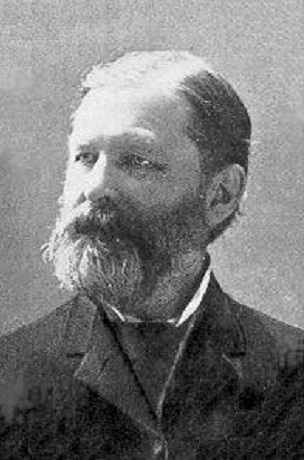
In 1864 Philadelphia, Penn.-born Robert Lowry (1826-99) composes the Christian hymn Shall We Gather at the River? (original titles "Beautiful River", "Hanson Place"), based on Rev. 22:1-2 and Acts 16:13; "Yes, we’ll gather at the river,/ The beautiful, the beautiful river;/ Gather with the saints at the river/ That flows by the throne of God"; on Aug. 27, 1868 he pub. the Christian hymn How Can I Keep from Singing? in The New York Observer under the title "Always Rejoicing", with lyrics attributed to "Pauline T."; "My life flows on in endless song;/ Above earth's lamentation,/ I catch the sweet†, tho' far-off hymn/ That hails a new creation;/ Thro' all the tumult and the strife/ I hear the music ringing;/ It finds an echo in my soul - / How can I keep from singing?"; in the 1950s Am. folk singer Pete Seeger adopts it with lyrics cleansed of overt Christian wording and an additional verse written in 1850 by Quaker Doris Plenn, making it popular with Quakers; Lowry follows in 1874 with Up from the Grave He Arose; "Up from the grave He arose,/ With a mighty triumph o’er His foes,/ He arose a Victor from the dark domain,/ And He lives forever,/ With His saints to reign./ He arose! He arose!/ Hallelujah! Christ arose"; Lowry follows in 1876 with Nothing But the Blood of Jesus, based on Hebrews 9; " What can wash away my sin?/ Nothing but the blood of Jesus/ What can make me whole again?/ Nothing but the blood of Jesus." Lowry goes on to leave 500+ hymns after becoming one of the first to supply text with the music.


In 1865 the words of the Christian hymn Onward, Christian Soldiers, based on II Timothy 2:3 are written by Anglican priest Sabine Baring-Gould (1834-1924), followed in 1871 by the music, which is composed by "The Mikado", "H.M.S. Pinafore", "The Pirates of Penzance" opera composer Sir Arthur Seymour Sullivan (1842-1900), who named it "St. Gertrude"; it is later adopted by the Salvation Army as its favorite processional.

In 1868 O Little Town of Bethlehem is written by Episcopal priest Phillips Brooks (1835-93) of the Church of the Holy Trinity in Philly three years after visiting the real town of Bethlehem; his organist Lewis Henry Redner (1831-1908) composes the music.



In 1869 blind Brewster, N.Y.-born hymn writer Fanny Crosby (Frances Jane van Alstyne) (1820-1915) pub. the Christian hymn (Jesus Keep Me) Near the Cross, with tune composed by Preston, Conn.-born William Howard Doane (1832-1915), who goes on to collaborate with Crosby on 2.3K gospel songs; "In the cross, in the cross,/ Be my glory ever,/ Till my raptured soul shall find/ Rest beyond the river." In 1873 Crosby and her friend Phoebe Knapp (1839-1908) compose the Christian hymn Blessed Assurance. Crosby goes on to pub. 8K+ more gospel songs under 200 aliases that sell 100M copies that fill almost all Am. hymnals, fuelling the success of the Moody and Sankey evangelical campaigns and becoming known as "Queen of Gospel Song Writers"; Knapp goes on to compose 500+ Christian hymns.

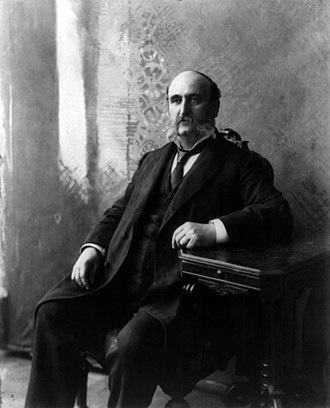
In June 1871 after founding Illinois Street Church in Chiago in 1864, and staging revival meetings with Union troops in the U.S. Civil War, Northfield, Mass.-born Christian evangelist Dwight Lyman Moody (1837-99) recruits Edinburg, Penn.-born amateur baritone singer Ira David Sankey (1840-1908) to sing at his revival meetings in the U.S. and U.K., composing tunes set to lyrics by others, pioneering a gospel music style that is used for generations, proving that gospel music originated with Northern urban whites rather than Southern blacks; on Jan. 19, 1876 Pres. Grant and some of his cabinet officials attend a Moody meeting; "Sweet Singer of Methodism" Sankey's hymn collections go on to sell 50M+ copies; after the Oct. 1871 Great Chicago Fire burns down Moody's church, he buys a farm near his birthplace in Northfield, Mass., which becomes a prominent center of Am. evangelism with its summer conferences that draw prominent Christian preachers and evangelists from around the world.
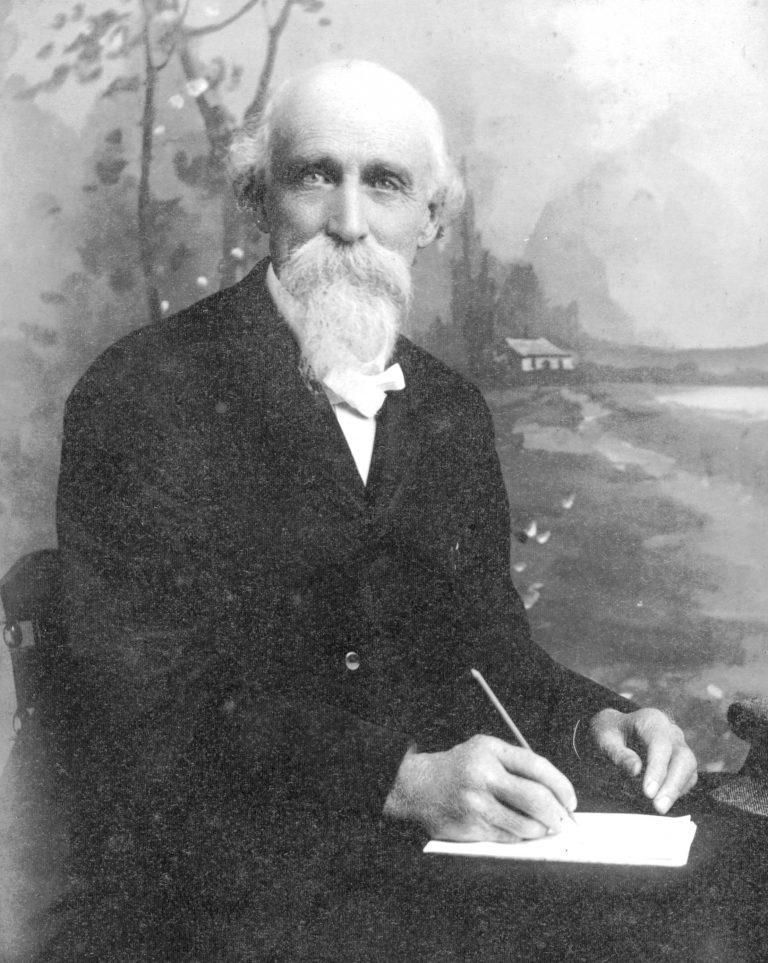
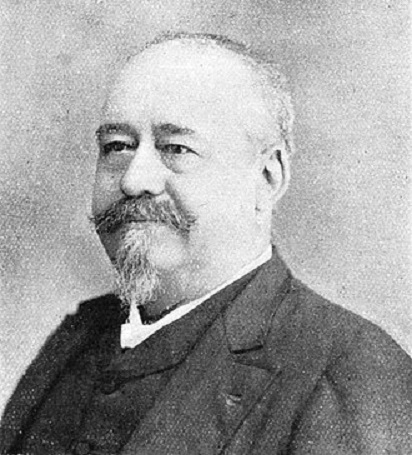
In 1876 Cape May, N.J.-born Edgar Page Stites (1836-1921) composes the Old Time Gospel song (Oh) (Sweet) Beulah Land, set to music by West Chester, Penn.-born John Robson Sweney (1837-99); the word "Beulah" is Hebrew for married, referring to the promised land; "O Beulah land, sweet Beulah land!/ As on thy highest mount I stand,/ I look away across the sea./ Where mansions are prepared for me/ And view the shining glory shore/ My heaven, my home forever more." Listen.

In 1878 Orwigsburg, Penn.-born German descent Presbyterian minister E.A. (Elisha Albright) Hoffman (1839-1929) composes the Christian hymn Are You Washed in the Blood?, based on Rev. 7:14: "They have washed their robes and made them white in the blood of the Lamb"; it becomes a marching song for the Salvation Army; Hoffman goes on to compose 2K+ hymns incl. What a Wonderful Savior! and "Leaning on the Everlasting Arms".

In 1887 Cherry Grove, Va.-born Anthony Johnson Showalter (1858-1924) pub. the song Leaning on the Everlasting Arms, inspired by Deut. 33:27; "The eternal God is thy refuge, and underneath are the everlasting arms"; lyrics are by Whowalter and Elisha Hoffman; "What a fellowship,/ what a joy divine/ Leaning on the everlasting arms/ What a blessedness,/ what a peace is mine/ Leaning on the everlasting arms." Listen.
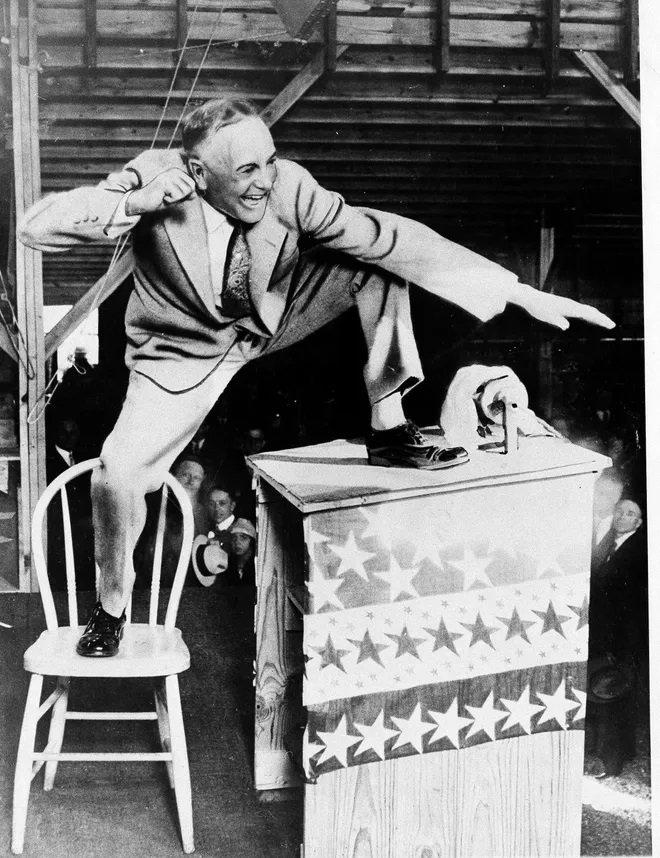
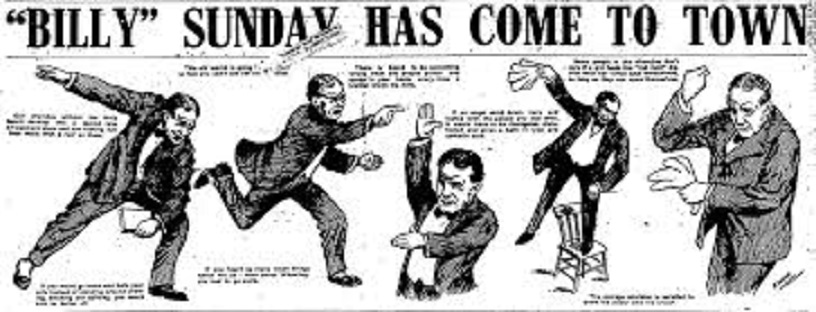
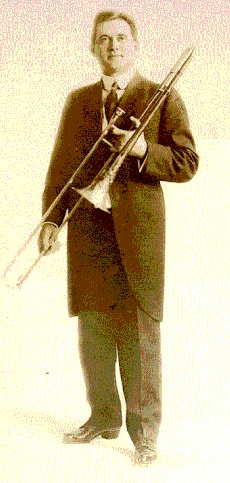
In 1887 Ames, Iowa-born prof. baseball player William Ashley "Billy" Sunday (1882-1935) (originally Sonntag) hears a street corner gospel preaching team in Chicago, Ill., and becomes a Christian, retiring from baseball in spring 1891 to work for the Chicago YMCA, then becoming full-time asst. to evangelist J. Wilbur Chapman in 1893, going solo in 1896 in Garner, Iowa, preaching for 12 years in the "kerosine circuit" (no electrification) in Iowa and Ill.; in 1910 he recruits Hocking County, Ohio-born trombonist Homer Alvan Rodeheaver (1880-1955) as musical dir., who stays with him for almost 20 years; in 1910 the phrase "hitting the sawdust trail" is coined for walking to the podium to be saved on his sawdust-covered tabernacle floors; Sunday's org. grows to a staff of 26 in 1917; by his 1935 death Sunday saves 1M+ and preaches to 100M+ in 20K sermons, earning over $1M between 1908-20 and hobnobbing with Pres. Teddy Roosevelt, Woodrow Wilson, and Herbert Hoover, along with John D. Rockefeller Jr. and Hollywood stars incl. Douglas Fairbanks Sr.
In 1888 Edward S. Ufford composes the gospel hymn Throw Out the Life Line; "Throw out the lifeline across the dark wave;/ There is a brother whom someone should save;/ Somebody's brother O who then will dare?/ To throw out the lifeline, his peril to share?"
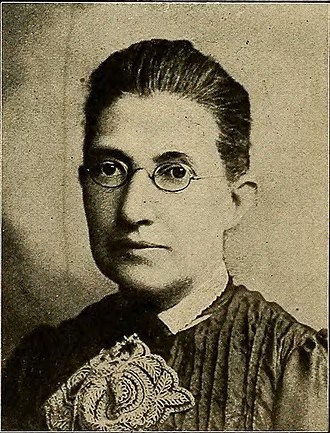
In 1898 Philadelphia, Penn.-born Presbyterian Eliza Edmunds Hewitt (1851-1920), cousin of Edgar Page Stiles composes the lyrics to the Christian hymn When We All Get to Heaven, with melody by Mrs. J. G. (Emily) Wilson; "When we all get to Heaven/ What a day of rejoicing that will be!"/ "When we all see Jesus/ we'll sing and shout the victory!" Listen.

In 1912 Youngstown, Ohio-born Iowa-raised Methodist evangelist George Bennard (1873-1958) composes the hymn The Old Rugged Cross; it is first performed on June 7, 1913 at the First Methodist Episcopal Church of Pokagon, Mich.; Ernest Tubb makes it a country gospel hit in 1952; "On a hill far away, stood an old rugged Cross/ The emblem of suff'ring and shame/ And I love that old Cross where the dearest and best/ For a world of lost sinners was slain./ So I'll cherish the old rugged Cross/ Till my trophies at last I lay down/ I will cling to the old rugged Cross/ And exchange it some day for a crown."
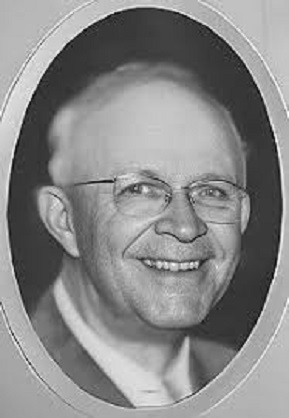
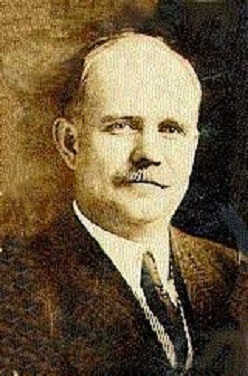
In 1933 Spring Hill, Penn.born Alfred Henry Ackley (1887-1960) composes the Christian hymn He Lives, based on Gal. 2:20 and Eph. 3:17; in 1907 his brother Bentley DeForest Ackley (1872-1958) begins touring with Billy Sunday and later Homer Rodeheaver, going on to compose 3K+ Gospel songs; "I serve a risen Saviour, He's in the world today;/ I know that He is living, whatever foes may say;/; I see His hand of mercy, I hear His voice of cheer,/ And just the time I need Him, He's always near." " He lives, he lives! Christ Jesus lives today!/ He walks with me and talks with me along life's narrow way./ He lives, He lives, salvation to impart!/ You ask me how I know He lives? He lives within my heart!" Listen; Listen to Alan Jackson version.

In Apr. 21, 1947 Butler County, Ala.-born country singer Hiram "Hank" Williams (1923-53) records his 2nd song for MGM Records, I Saw the Light, which is released in Sept. 1948, becoming his signature song, played at the news of his untimely death; song title echoes the words of Hank's mother Lilly after she arouses him from his drunken sleep in the back of her car and tells him she sees the lights of Dannelly Field Airport. Listen.

On June 29, 1960 Richard Brooks' Elmer Gantry (United Arists) debuts, based on the 1926 Sinclair Lewis novel, starring Burt Lancaster as a smooth-talking ever-smiling small-town Southern evangelist phony who talks his way into a travelling congregation and the bed of Sister Sharon Falconer (Jean Simmons), and jukes the elders into taking on big city Zenith in the state of Winnemac (pop. 361K) while being watched by agnostic reporter Jim Lefferts (Arthur Kennedy), and dumps girlfriend Lulu Baines (Shirley Jones), causing her to turn into a ho then frame him for revenge, causing the crowd to pelt him with garbage, after which the tent burns down and takes Sharon with it, causing him to quit, quoting the Bible verse "When I was a child, I understood as a child and spake as a child. When I became a man I put away childish things" (1 Cor. 13:11); features a bunch of old-time gospel songs incl. Do You Believe?, Shall We Gather at the River, Stand up for Jesus. Onward Christian Soldiers, and I'm on My Way; Listen; the real fun is watching Bible-thumping Gantry manage to condemn Biblical Creation with faint praise?; does $5.2M box office on a $3M budget.
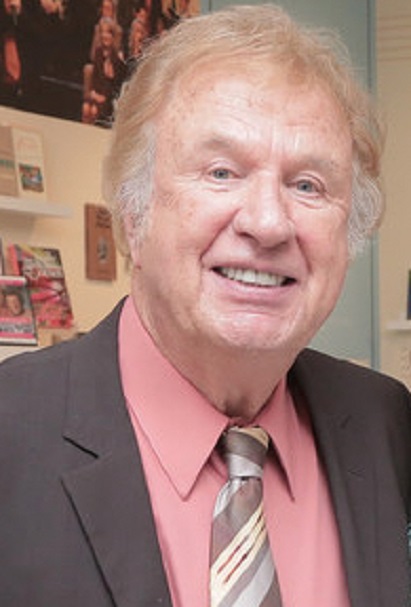
In 1963 Alexandria, Ind.-bornWilliam James "Bill" Gaither (1936-) composes the gospel song He Touched Me. Listen. In Apr. 1972 Elvis Presley releases his album #17 (3rd and final studio gospel album) He Touched Me, making the song a hit.

In 1969 Alexandria, Ind.-born William James "Bill" Gaither (1936-) and Battle Creek, Mich.-born Gloria Gaither (nee Sickal) (1942-) release their hymn Because He Lives, which becomes a giant hit; they go on to be named Songwriters of the Cent. in 2000 by ASCAP; "Because He lives, I can face tomorrow,/ Because He lives, all fear is gone;/ Because I know He holds the future,/ And life is worth the living,/ Just because He lives!" Listen.

On Oct. 10, 1969 1-hit wonder who makes hay while the Jesus Freak sun shines Malden, Mass.-born Norman Joel Greenbaum (1942-), releases his 2M-selling hit Spirit in the Sky (#3 in the U.S., #1 in the U.K.), which is huge with hippies and square Christians and half-and-half Jesus Freaks, along with everybody, even though few realize that he is Jewish and claims to be a practicing zombie, and is parodying TV evangelists, I just want to hide in a corner. Greenbaum has some more charting hits, but none come close to equalling this classic, which is covered by Bauhaus, Doctor and the Medics, Elton John, Chipmunks United, DC Talk, and Nina Hagen.

In the apocalyptic late 1960s the Jesus Freaks mass movement begins in the U.S., thumping copies of the 1966 Bible translation "Good News for Modern Man" (which sells 30M copies by 1971), and holding open air meetings where they groove on Jesus' love with outstretched arms, don't miss it; the movement peaks in 1971.


In 1970 Springhill, N.S., Canada-born singer Morna Anne Murray (1945-) releases album #3 Honey, Wheat and Laughter, featuring the song Put Your Hand in the Hand, composed by Val-d'Or, Quebec-born Gene MacLellan (1938-95), which is covered by the Toronto, Canada-based band Ocean in Feb. 1971 in their 1971 debut album, reaching #2 on the U.S. Billboard Hot 100; on Jan. 19, 1995 after hospitalization for depression, MacLellan commits suicide. Listen. Listen.
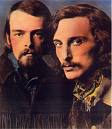
In 1970 the Los Angeles, Calif.-based folk rock duo Brewer & Shipley release album #3 Tarkio, named after Tarkio, Mo.; it incl. One Toke Over the Line, a joke song about smoking marijuana, which clueless Gail Farrell and Dick Dale perform on the Lawrence Welk Show, with Welk calling it a "modern spiritual", causing U.S. Vice-Pres. Spiro Agnew to label them subversive to U.S. youth.
In 1971 the Christian music record label Maranatha! Music is founded by Pentecostalist Cavalry Chapel for new Jesus Movement groups incl. Sweet Comfort Band, Love Song, Chuck Girard, Children of the Day, The Way, Debby Kerner, Mustard Seed Faith, Karen Lafferty, and Daniel Amos; in 1974 the first of 20 Praise Albums is released (ends 1999); hit songs incl. "He Has Made Me Glad", "Father, I Adore You", "Glorify Thy Name", "Spirit Song", "Behold the Manner of Love", "Psalm 5", "I Love You Lord", "Seek Ye First", "In His Time", "Open Our Eyes Lord". Listen.
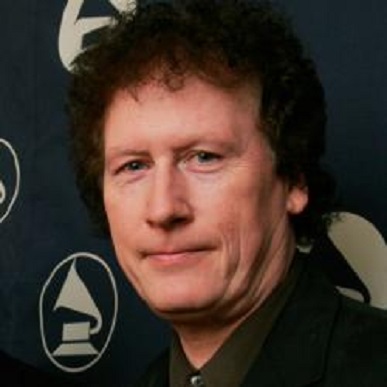
In 1982 John W. Thompson (1950-) and Nashville, Tenn.-born Randy Lynn Scruggs (1953-) compose the Christian song (Lord, prepare me to be a) Sanctuary; "Lord, prepare me to be a sanctuary,/ Pure and holy, tried and true;/ With thanksgiving, I’ll be a living/ Sanctuary for you." Listen.

In 1983 Bogalusa, La.-born Geron Davis (1960-) composes the song (On) Holy Ground for the dedication of a new church bldg. om Savannah, Tenn. by his pastor father, which is heard by Ark. gov. Bill Clinton, who has it sung at his mother's funeral, where it is heard by Barbra Streisand, who on Nov. 11, 1997 releases it on her 27th album Higher Ground (5MK copies), making it a big hit; "As I walked through the door, I sensed His presence,/ And I knew this was a place where love abounds./ For this is the temple; Jehovah God abides here./ We are standing in His presence on holy ground./ We are standing on holy ground,/ and I know that there are angels all around./ Let us praise Jesus now!/ We are standing in His presence on holy ground." Listen.



On Dec. 11, 1984 Westmount, Quebec, Canada-born singer Leonard Norman Cohen (1934-2016) releases album #7 Various Postitions, featuring the song Hallelujah, which in 1991 is covered by Welsth musician (founding member of the Velvet Underground) John Davies Cale (1942-), becoming a big hit that is featured in the 2001 film "Shrek", inspiring a version in his Aug. 15, 1994 album Grace (2M copies) by Anaheim, Calif.-born Jeffrey Scott "Jeff" Buckley (Scott Moorhead) (1966-97), which becomes a bigger hit, ranked #259 in Rolling Stone's Greatest 500 Songs of All Time; "Now I've heard there was a secret chord/ That David played, and it pleased the Lord/ But you don't really care for music, do you?/ It goes like this, the fourth, the fifth/ The minor falls, the major lifts/ The baffled king composing Hallelujah/ Hallelujah, Hallelujah/ Hallelujah, Hallelujah"; Listen to Leonard Cohen's version. Listen to John Cale's version. Listen to Jeff Buckley's version.
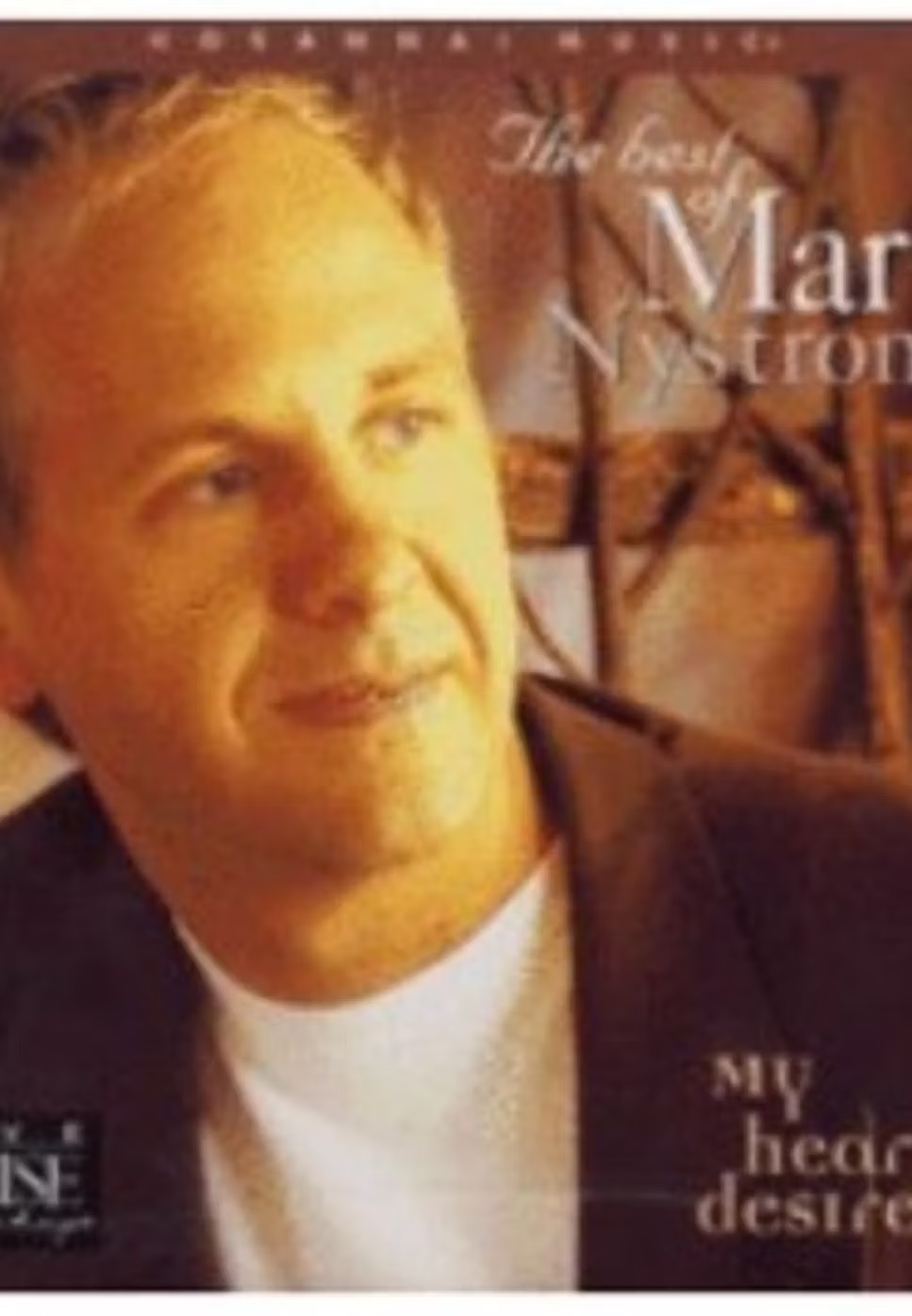 In 1984 Martin J. "Marty" Nystrom of Seattle, Wash. composes the Christian worship song
As the Deer, based on Psalm 42:1:
"As the deer panteth for the water, so my soul longeth after Thee. You alone are my heart's desire, and I long to worship Thee."
Listen.
In 1984 Martin J. "Marty" Nystrom of Seattle, Wash. composes the Christian worship song
As the Deer, based on Psalm 42:1:
"As the deer panteth for the water, so my soul longeth after Thee. You alone are my heart's desire, and I long to worship Thee."
Listen.

In 1987 British musician Graham Kendrick (1950-) composes the Christian praise song Shine, Jesus, Shine; "Lord, the light of your love is shining/ In the midst of the darkness, shining/ Jesus, Light of the world, shine upon us/ Set us free by the truth you now bring us/Shine on me, shine on me." Listen.

On Aug. 2, 1988 Richmond, Ind.-born Richard Wayne "Rich" Mullins (1955-97) releases album #3 Winds of Heaven, Stuff of Earth, containing his hit song Awesome God; "Our God is an awesome God/ He reigns from heaven above/ With wisdom, power, and love/ Our God is an awesome God"; Listen.

In 1989 Idaho Falls, Idaho-born Rick Founds (1954-) of Fallbrook, Calif. releases the Christian worship song Lord, I Lift Your Name on High; it goes on to become the most popular song used in U.S. churches in 1997-2003. You came from heaven to earth, to show the way/ From the earth to the cross, my debt to pay/ From the cross to the grave, from the grave to the sky/ Lord I lift your name on high." Listen.

In 1992 Sapulpa, Okla.-born contemporary Christian musician ("song receiver") (former gay) Dennis L. Jernigan (1959-) composes the song You Are My All in All, with title taken from the 1539 Great Bible; "You are my strength when I am weak/ You are the treasure that I seek/ You are my all in all/ Seeking You as a precious jewel/ Lord to give up I'd be a fool/ You are my all in all/ Jesus Lamb of God/ Worthy is your name/ Jesus Lamb of God/ Worthy is your name/ Taking my sin my cross my shame/ Rising again I bless your name/ You are my all in all/ When I fall down you pick me up/ When I am dry You fill my cup/ You are my all in all". Listen>

In 1994 Calif.-born contemporary Christian singer Scott Underwood (b. ?) releases the song Take My Life (Holiness); "Holiness, holiness/ Is what I long for,/ Holiness is what I need./ Holiness, holiness/ Is what you want from me". Listen.

In 1995 Camden, N.J.-born Paul Joseph Baloche (1962-) and Leominster, Mass.-born Lenny LeBlanc (1957-) compose the Christian contemporary song Above All; On Sept. 11, 2001 it is covered by Kenova, W.Va.-born musician Michael Whitaker Smith (1957-) in his live album #16 Worship, after he was invited to sing it at Pres. George W. Bush's Jan. 21, 2001 pres. inaugural prayer service; "Above all powers/ Above all kings/ Above all nature and all created things/ Above all wisdom and all the ways of man/ You were here before the world began"; Listen.
In 2001 the Christian worship song You Are My King (Amazing Love), written by Billy James Foot appears on the Philips, Craig and Dean album "Let My Words Be Few", based on Charles Wesley's hymn "And Can It Be"; on Apr. 8, 2003 the Australian Christian group Newsboys incl. it in their album #10 Adoration: The Worship Album. >Listen.
In June 2003 Billboard mag. debuts its Hot Christian Songs music chart., with rankings based on audience impressions, changing on Dec. 7, 2013 to the same methodology used in its Hot 100 music chart.

On Oct. 11, 2005 Chicago, Ill.-born contemporary Christian musician Aaron Michael Shust (1975-) releases album #1 Anything Worth Saying, featuring the lead single My Savior My God, which uses verses from Dora Greenwell's 1873 poem "I Am Not Skilled to Understand", which is released as a radio single in 2006, becoming the first #1 hit on Christian radio (six charts) on Apr. 17 and the #2 biggest Christian song of the 2000s; "My Savior loves, my Savior lives/ My Savior's always there for me/ My God He was, my God He is/ My God He's always gonna be". Listen.


On Feb. 10, 2009 after the Christ for the Nations Inst. album "Glorious" is released in 2004, gaining it exposure, followed by the 2006 Gateway Worship debut album "Living for You", Waco, Tex.-born singer Kari Brooke Jobe (1981-) releases her self-titled debut album Kari Jobe, which features Revelation Song, written by Jefferson, Tex.-born Jennie Lee Riddle 91967-), based on Rev. 5, after which on May 5, 2009 the contemporary Christian group Phillips, Craig and Dean release it as the lead single from their album #11 Fearless, becoming a #1 hit; " [It] captures the moment of looking up into Heaven, peeling back the curtain of eternity so we can peek in. If you keep your eyes on the Dow Jones or nuclear weapons in North Korea, you’ll always be nervous. Look to the awesomeness of God instead.” (Randy Phillips); on Nov. 21, 2014 Jobe marries fellowAtlanta, Ga.-born Christian singer Cody Jay Carnes (1989-), visiting Pres. Trump at the White House in Dec. 2019, which is used as an unplanned photo opp for Trump; "Holy, holy, holy/ Is the Lord, God Almighty/ Who was and is and is to come, yeah/ With all creation I sing, praise to the King of Kings/ You are my everything/ And I will adore You"; Listen.

On Aug. 23, 2013 the Sydney, Australian-based contemporary Christian group Hillsong United (UNITED) releases the single Oceans (Where Feet May Fail) from their album #3 Zion (released Feb. 22), which rockets to #1 on the Billboard Hot Christian Songs chart for 61 straight weeks, later ranked as the #1 Christian song of the 2010s *; "Spirit lead me where my trust is without borders/ Let me walk upon the waters/ Wherever You would call me/ Take me deeper than my feet could ever wander/ And my faith will be made stronger/ In the presence of my Saviour". Listen.



On Mar. 30, 2018 Monticello, Ill.-born Christian singer Andrew Peterson (1974-) releases the album Resurrection Letters, Vol. 1, containing the song Is He Worthy?, co-written by St. Louis, Mo.-born Benjamin Aaron "Ben" Shive (1979-), which is covered on his album #11 Holy Roar by Grand Saline, Tex.-born Christian singer Christopher Dwayne "Chris" Tomlin (1972-), released on Oct. 26; "Is anyone worthy? Is anyone whole?/ Is anyone able to break the seal and open the scroll?/ The Lion of Judah who conquered the grave/ He is David's root and the Lamb who died to ransom the slave". Listen. Tomlin's album also incl. Resurrection Power, which reaches #6 on the Billboard Hot Christian Songs chart; "Now I have resurrection power living on the inside/ Now, I'm no longer bound by sin and darkness/ Living in the light of Your goodness/ You have given us freedom!" Listen.

On Jan. 4, 2019 contemporary Christian singer Jenn Johnson, pastor at Bethel Church in Redding, Calif. releases her song Goodness of God, co-written by her hubby Brian Johnson, along with Ed Cash and Ben Fielding, which peaks at #15 on the Hot Christian Songs chart; "All my life You have been faithful/ All my life You have been so, so good/ (So good with every breath) every breath that I am able/ I will sing (I'm gonna sing)/ Of the goodness (of the goodness of God, yes I am)/ I'm gonna sing of the goodness of God/ Oh, I'm gonna sing of the goodness of God." Listen.

On Mar. 26, 2021 CeCe Winans (Priscilla Marie Winans Love) (1964-) releases a cover of "Goodness of God" on her live album Believe For It (Mar. 12, 2021), which peaks at #6; the album also incl. the song Believe for It, which wins the 2022 Grammy for best contemporary Christian music song; "Move the immovable/ Break the unbreakable/ God, we believe/ God, we believe for it". Listen.